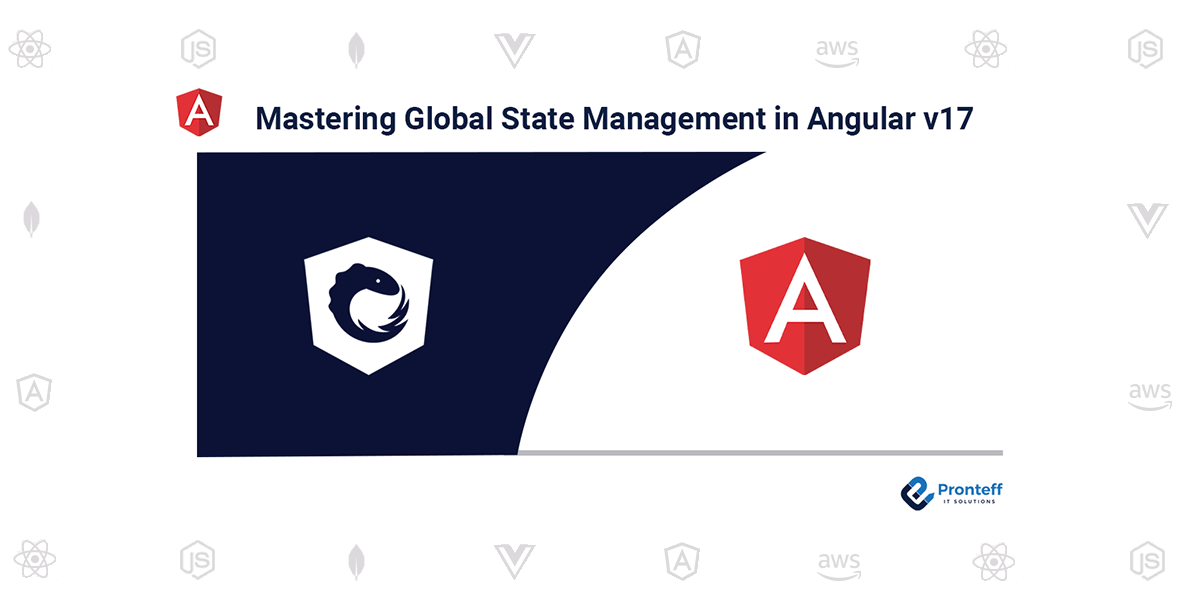Mastering Global State Management in Angular v17
Here in this blog we will learn about Mastering Global State Management in Angular V17.
Introduction:
Angular v17 continues to evolve, bringing new features and improvements to enhance the development experience. One crucial aspect of building robust applications is managing global state efficiently. In this blog post, we’ll explore the best practices for managing global state in Angular v17.
Why Global State Management Matters:
Global state refers to the data that needs to be shared across components in an Angular application. Efficiently managing this state is crucial for maintaining a clean and scalable codebase. Traditional methods, such as using services or Input/Output bindings, have their limitations. Angular v17 introduces advanced techniques to streamline global state management.
-
NgRx Store:
Leveraging the power of RxJS observables, NgRx Store is a state management library for Angular applications. It enables developers to maintain a single, centralized store for the entire application state. Actions, reducers, and selectors work together to handle state changes predictably.
// Example Action const increment = createAction('[Counter Component] Increment'); // Example Reducer const counterReducer = createReducer(initialState, on(increment, state => ({ ...state, count: state.count + 1 })) );
- Angular Services with BehaviorSubject:
Angular services combined with BehaviorSubjects provide a simple yet effective way to manage global state. BehaviorSubjects allow components to subscribe to changes and receive the latest state. The service acts as a centralized hub for state updates.
// Example Service @Injectable({ providedIn: 'root' }) export class StateService { private _data = new BehaviorSubject<string>('initial value'); get data$(): Observable<string> { return this._data.asObservable(); } updateData(newData: string): void { this._data.next(newData); } }
- Akita:
Akita is another powerful state management solution for Angular applications. It provides a simplified API for managing state, making it easy to set up stores, actions, and queries. Akita’s flexibility and concise syntax make it a preferred choice for many developers.
// Example Store export interface AppState extends EntityState { user: User; } @Injectable({ providedIn: 'root' }) export class AppStore extends EntityStore<AppState> { constructor() { super(); } }
Conclusion:
Effectively managing globe state is crucial for building scalable and maintainable Angular applications. Whether you choose NgRx Store, Angular services with BehaviorSubjects, or Akita, each approach has its strengths. As you dive into Angular v17, exploring these state management techniques will empower you to create more efficient and maintainable applications.








